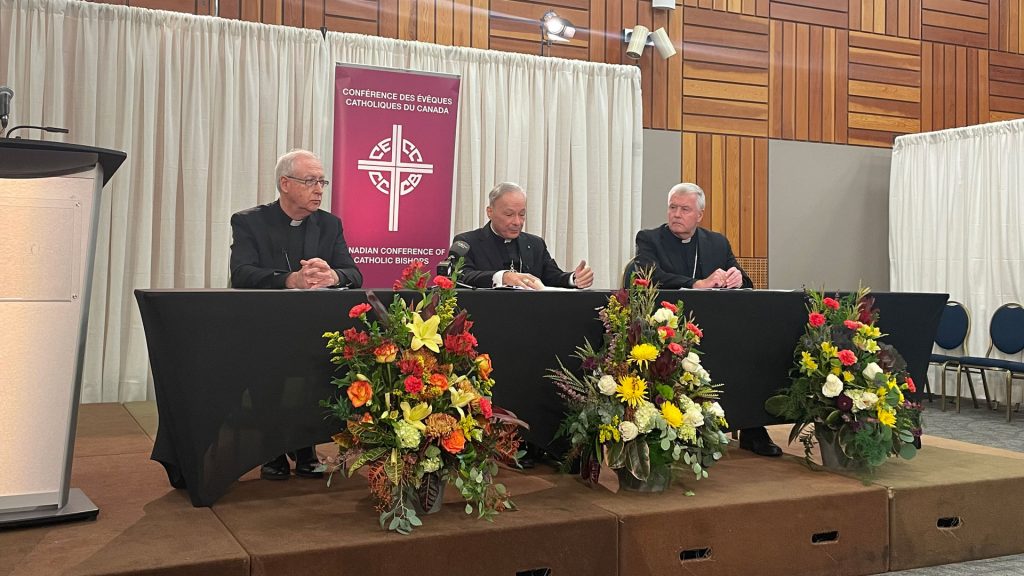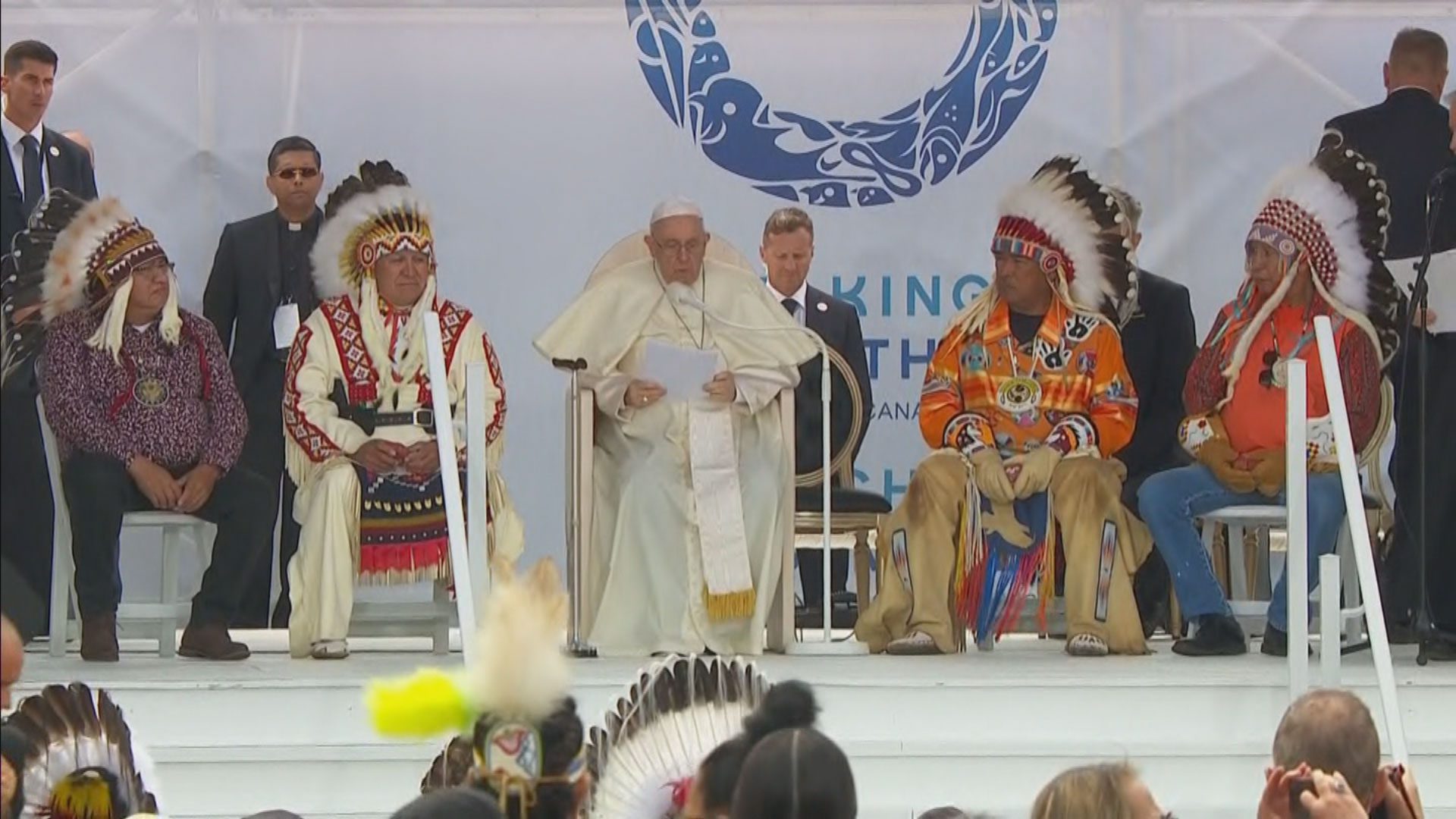
Left, CCCB president Raymond Poisson, Archbishop Richard Smith and McGratton at a news conference at the end of the meetings. Photo: Emelia Fournier/APTN.
The Canadian Conference of Catholic Bishops (CCCB) concluded its four-day plenary assembly with a press conference where they announced further efforts towards reconciliation – but not the cash promised to go with it.
Last year, the CCCB announced it would raise $30 million for healing and reconciliation initiatives.
It established the Indigenous Reconciliation Fund (IRF) in January 2022, which has raised $5.5 million so far.
The IRF is a registered charity chaired by Chief Wilton Littlechild, a Cree residential school survivor and lawyer.
When asked why the money for reconciliation wouldn’t be made available sooner, CCCB vice-president William McGrattan said it was to strengthen relations between local dioceses and Indigenous Peoples.
“One of the decisions is for that to allow for that to be collected over five years is to make sure the local relationships, the ability for the local communities to identify the needs that will be most important and impactful,“ he said after the Sept. 29 meeting.
“Certain dioceses are choosing different ways of collecting those funds and making sure that that commitment is made. Some may take up collections, others may find it through assets that they have.”
In comparison, the Canadian Catholic Church spent $18.6 million on the 2022 papal visit.
A 2021 investigation by the Globe and Mail and Charity Intelligence revealed that in 2019, the Canadian Catholic Church held net assets of $4.1 billion, including over $800 million in donations.
This fundraising is a separate initiative from the terms laid out in the Indian Residential School Survivors Agreement from 2006. In that agreement, 48 Catholic church entities promised to fundraise $25 million for survivors through their “best efforts.”
In 2015, the Harper government agreed to “forever discharge” said Catholic entities from their financial obligations and foot their legal bill, even though they had raised less than $4 million, according to a document obtained by the Canadian Press.
“My understanding of the decision of the Indian Residential School Settlement Agreement, also known as the IRSSA, is that those compensations were entered into at that time that those have been, through the government, through other entities, have been fulfilled.
“And the 30 million is a commitment of our ongoing importance as a church to this journey of healing and reconciliation,” said McGrattan.

The bishops also approved guidelines for diocese archivists so that researchers and those affected by residential schools alike could access records easier. McGrattan also said that many local dioceses had formed committees dedicated to the process of reconciliation.
“I think we are trying to take to heart what Pope Francis invited us all to do, is to make concrete what reconciliation is. And always to do it in a sensitive way,” said McGrattan.
It had been three years since the 72 bishops had last assembled in-person, and it was the first plenary assembly since the Pope’s apology and acknowledgment of the Catholic Church’s role in Indigenous genocide.
Bishop and CCCB president Raymond Poisson (St-Jérôme-Mont Laurier), Archbishop Richard Smith (Edmonton), and Bishop and McGrattan (Calgary) spoke about the next steps for reconciliation, the papal visit and apology, and the importance of holding clergy members accused of misconduct accountable.
The press conference opened with a land acknowledgment that “Alexandria Cornwall is located on the traditional territory of the Haudenosaunee, Mohawk and Huron Wendat.”
In a press release following the plenary assembly, the CCCB also said that Canada’s bishops continue to “reject and resist ideas associated with the doctrine of discovery in the strongest way possible.”
“What we have stated as Canadian bishops that these doctrines that are related to papal bulls, that we do not accept the premises and the principals behind them, even though they’re historically contextual, we know that some of the language, in today’s understanding, is offensive,” said McGrattan.
Despite rejecting the ideas that justified the Catholic Church’s expropriation of Indigenous land and acknowledging the existence of traditional territories, McGrattan said whether church land would be returned to First Nations was undetermined.
“Part of what I know the bishops are doing is entering into these discussions with communities to understand some of the history of these land agreements, to understand the history of the presence of the Catholic Church in those communities, whether that be through a residential school or a parish, and I think at this point, as I’ve entered into discussions locally, I’m starting to see the complexity of this question,” he said.










